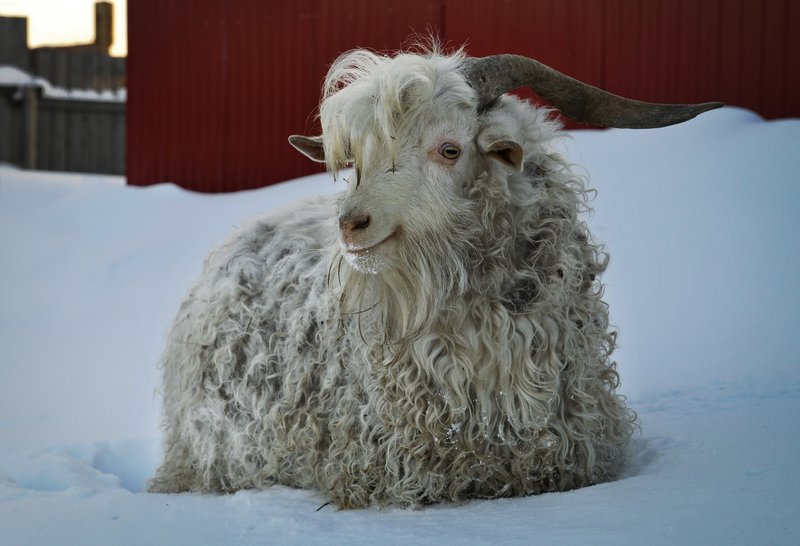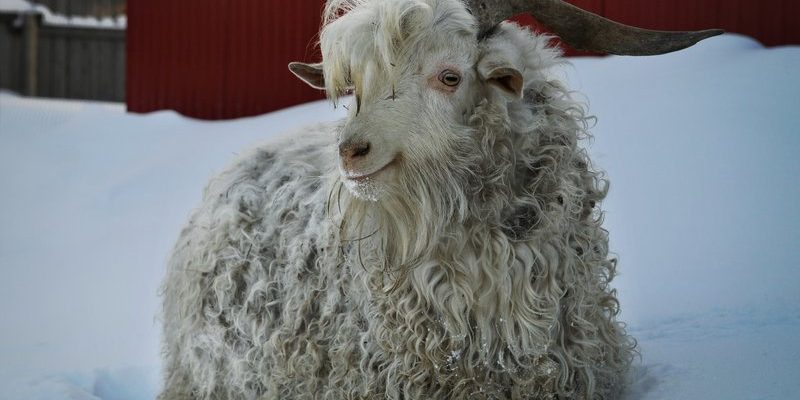
Picture it like this: taking care of an Angora goat is a bit like looking after a delicate plant. You want to give it the right environment, nourish it properly, and protect it from pests. In this case, the pests are various diseases and health issues that can pop up if you’re not careful. So, let’s explore these challenges and how to keep your fluffy friends thriving.
1. Parasites: The Unseen Threat
If there’s one thing that can really throw a wrench into your goat’s health, it’s parasites. These little nuisances can lead to serious problems like weight loss, anemia, and even death in severe cases. Angora goats, with their thick fleece, can be particularly susceptible to these critters.
Common parasites include worms, lice, and ticks. If you notice your goats scratching or if they seem lethargic, it might be time for a closer inspection. Regular deworming is crucial. You might want to consult a vet about the best deworming schedule for your herd. Personally, I’ve found that rotating between different dewormers can help keep those pesky worms on their toes!
Prevention Tips for Parasites
To keep parasites at bay, consider implementing the following strategies:
- Regular Fecal Checks: Test your goats’ droppings for parasite eggs every few months. It’ll help you catch any issues early.
- Maintain Clean Living Conditions: Regularly clean the goats’ housing and grazing areas to reduce exposure to parasites.
- Rotate Pastures: Moving goats to different areas can help interrupt the life cycle of parasites.
2. Respiratory Issues: Breathing Easy
Angora goats can also experience respiratory problems, especially if they’re exposed to damp or dusty environments. It’s a bit like trying to breathe in a smoky room – not fun at all!
Signs of respiratory distress include coughing, nasal discharge, and labored breathing. These symptoms can indicate anything from mild allergies to severe infections. It’s best to address respiratory issues quickly because they can escalate fast.
How to Prevent Respiratory Issues
Here are a few simple ways to ensure your goats’ lungs are in tip-top shape:
- Keep the Living Area Dry: Moist environments can lead to mold, which can trigger respiratory problems.
- Proper Ventilation: Ensure that their barn has good airflow while protecting them from drafts.
- Avoid Overcrowding: More goats can mean more moisture and waste, which can contribute to respiratory illnesses.
3. Foot Rot: A Risky Business
Foot rot is another issue that can plague Angora goats. It’s a painful condition caused by bacteria that thrive in wet, muddy conditions. Think of it like walking around in wet socks – uncomfortable, right?
Symptoms include limping or reluctance to walk. If you notice your goat favoring one leg, it’s time to check their hooves. Foot rot can be serious, leading to secondary infections if left untreated.
Preventing Foot Rot
To help prevent foot rot, you might want to consider these tips:
- Regular Hoof Trimming: Keep their hooves trimmed to prevent overgrowth and help keep them clean.
- Dry Living Conditions: Try to keep their living area as dry as possible to deter the bacteria that cause foot rot.
- Inspect Feet Regularly: Take a close look at their hooves regularly to catch any potential issues before they escalate.
4. Nutritional Deficiencies: Fueling the Fire
Just like you wouldn’t want your car to run on empty, Angora goats need a balanced diet to thrive! Their nutritional needs can be quite specific, and deficiencies can lead to health problems like poor growth and weakened immune systems.
They require a diet rich in proteins, vitamins, and minerals. If your goats aren’t getting enough of these essential nutrients, they might end up feeling sluggish or unwell.
How to Ensure Proper Nutrition
Here are some tips to help you provide a balanced diet for your Angora goats:
- Quality Hay: Ensure they have access to high-quality hay that’s free of mold or dust.
- Mineral Supplements: Consult with a veterinarian about the right mineral supplements to provide.
- Fresh Water: Always have clean, fresh water available. Dehydration can lead to several health issues.
5. Skin Problems: More Than Just the Fluff
Angora goats have that gorgeous, long fleece, but it requires care beyond regular grooming. Skin issues can pop up, from fungal infections to external parasites. Just think of how uncomfortable it would be to have an itchy rash all the time!
Common signs include scratching, skin lesions, or hair loss. If you catch these signs early, you can usually manage them with proper treatment.
Preventing Skin Problems
To keep your goats’ skin healthy, consider these strategies:
- Regular Grooming: Regularly brush your goats to keep their fleece clean and free from pests.
- Watch for Moisture: Keep them dry and avoid wet bedding, as moisture can lead to fungal infections.
- Monitor for Pests: Keep an eye out for signs of lice or mites and treat them promptly if found.
Taking care of Angora goats involves a bit more than just admiring their pretty fleece. By understanding common health issues like parasites, respiratory problems, foot rot, nutritional deficiencies, and skin issues, you can create a happier, healthier environment for your furry friends.
Remember, prevention is always better than cure. Regular check-ups, clean living conditions, and a balanced diet can go a long way in maintaining their health. So, whether you’re thinking about getting Angora goats or you’ve had them for a while, keeping a close eye on their well-being is key to enjoying many years with these charming creatures. Happy goat-keeping!

